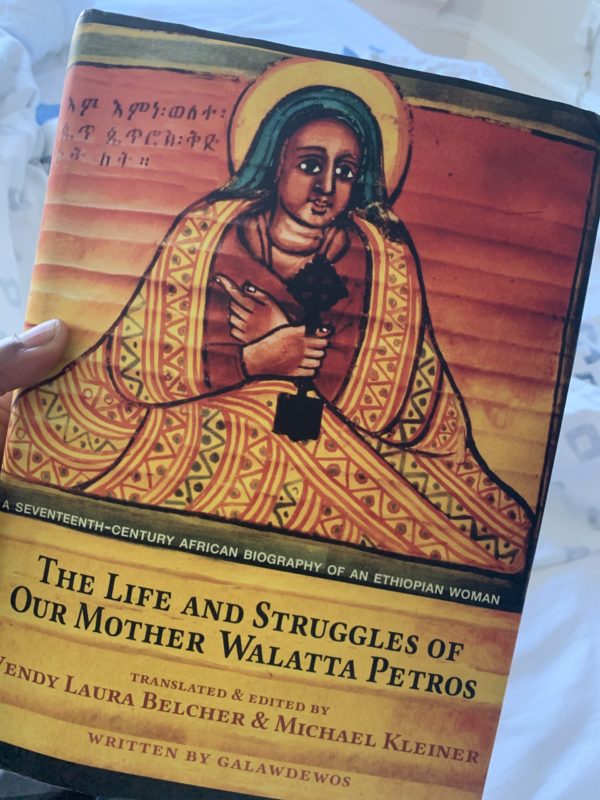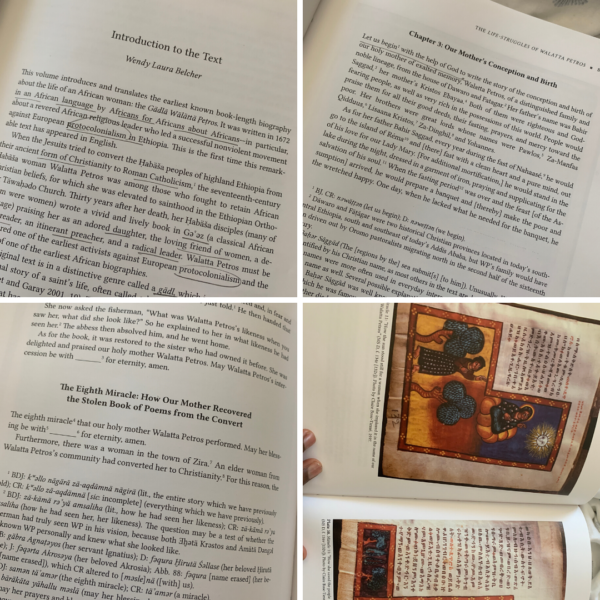
To kickoff Women’s History Month, we are taking you on a trip through time to the 17th century in the Ethiopian highlands.
In 1672, a scribe began documenting the life of Walatta Petros, an African woman who lived from 1592 to 1642 and founded communities of faith in various towns. She was revered as a saint.
Walatta Petros is a historical figure. The stories told about her life and the miracles done in her name might sound farfetched, but her work as a community builder and activist are verifiable from various historical sources.
Her biography, which details her life as a saint, was recently translated from Ge’ez to English by Princeton professor Wendy Laura Belcher and titled The Life and Struggles of Our Mother Walatta Petros.
Written in 1672, the Life and Struggles of Our Mother Walatta Petros is the first English translation of a biography about an African woman written by an African for an African audience. It gives us a rare peek into women’s lives in Ethiopia’s early modern period.
And for readers who still think Things Fall Apart is the beginning of African literature, this translation opens up the stunning world of African manuscript culture that reached its height in the 17th century.

Walata Petros’s life is inspiring. She was born to a noble family. She married an official of the king and had three children. But they all died. She eventually decided to leave her husband in order to begin a new life as a nun. The book details the drama around her plans to leave her husband, his refusal, and the failed attempts to get her back.
The book also details her decades-long effort to organize communities of faithful Christians devoting their lives in the service of God.
Walatta Petros’s sainthood is based on the Tawahedo Church tradition. Yes, there is an African christian tradition, older than the Roman Catholic church. In fact, a good bit of Walatta Petros’s activism involved fighting off Jesuit priests from Portugal trying to undermine the faith and values of Ethiopian Christians.
She suffered at the hands of kings who could not handle her refusal to abide by the norm, but she was fearless. The later parts of the book chronicles delightful stories of miracles done in her name.
Walatta Petros’ story reveals an unexplored world of African women as activists and community leaders.
Click here to buy and start reading with us!









COMMENTS -
Reader Interactions